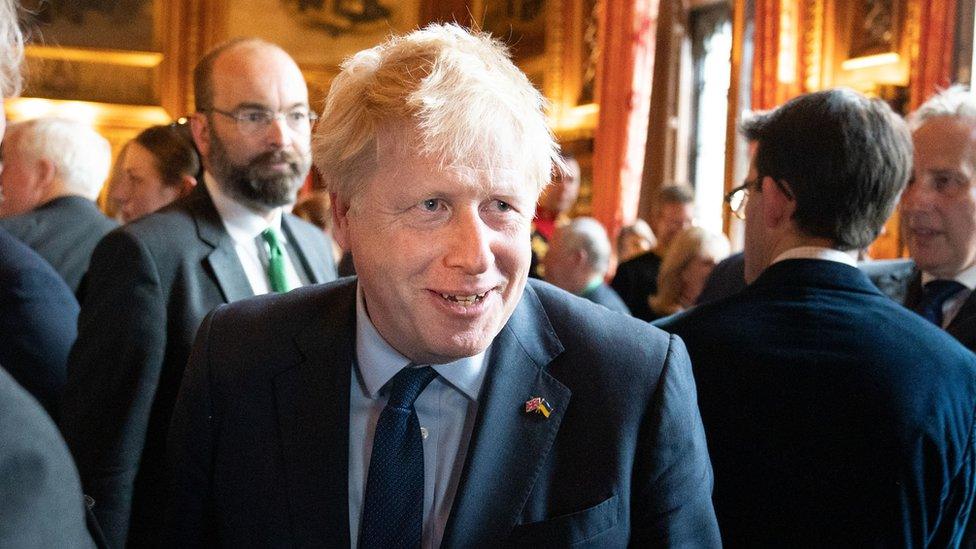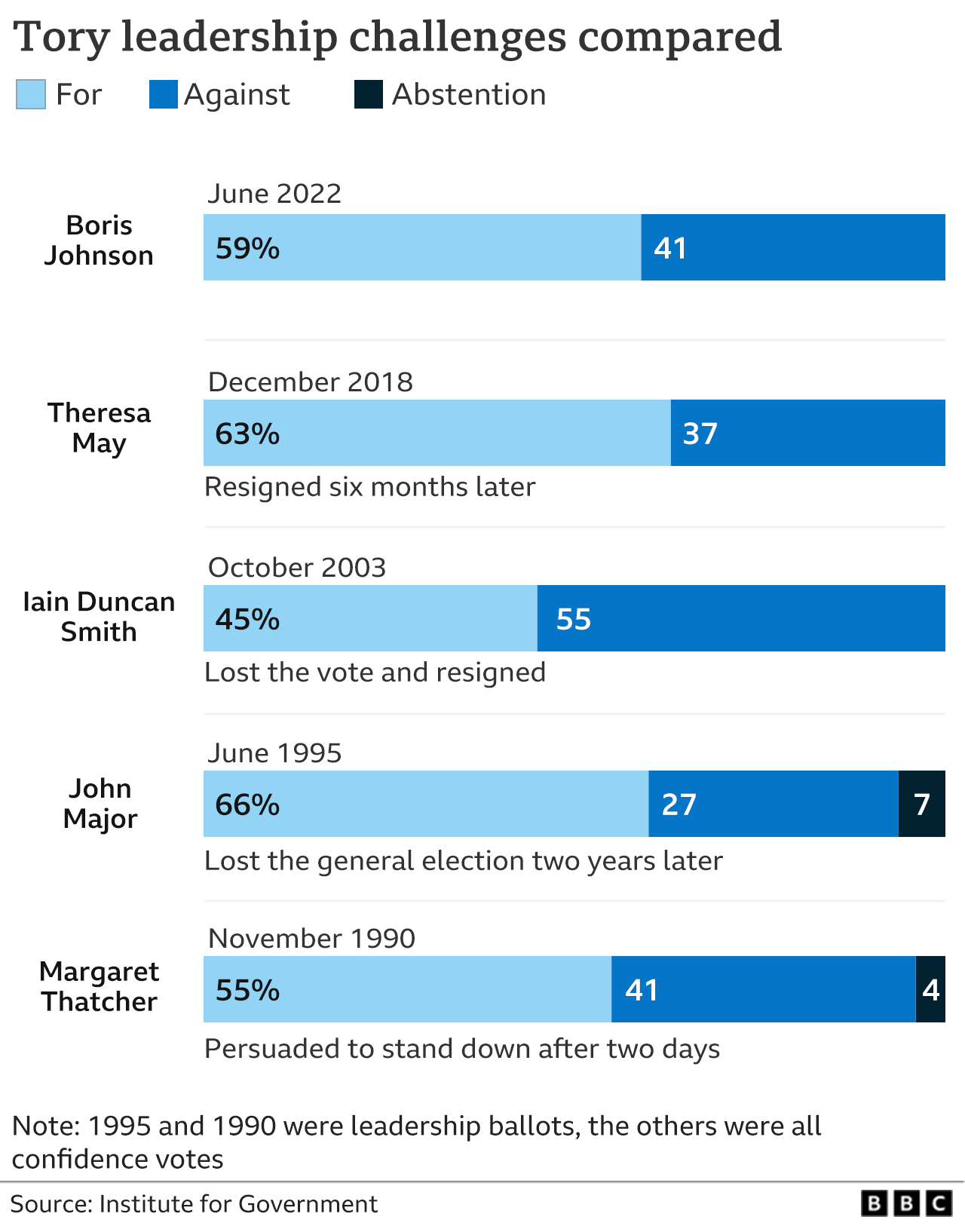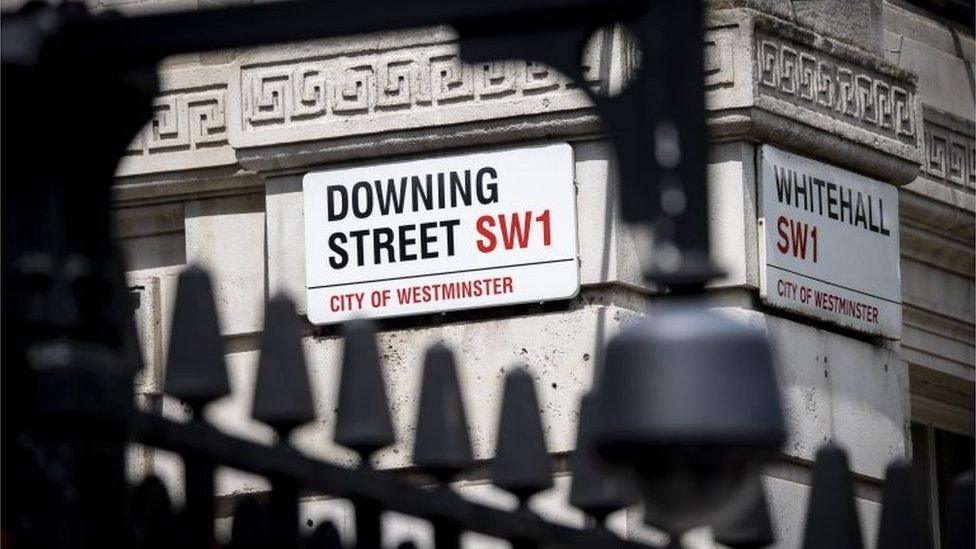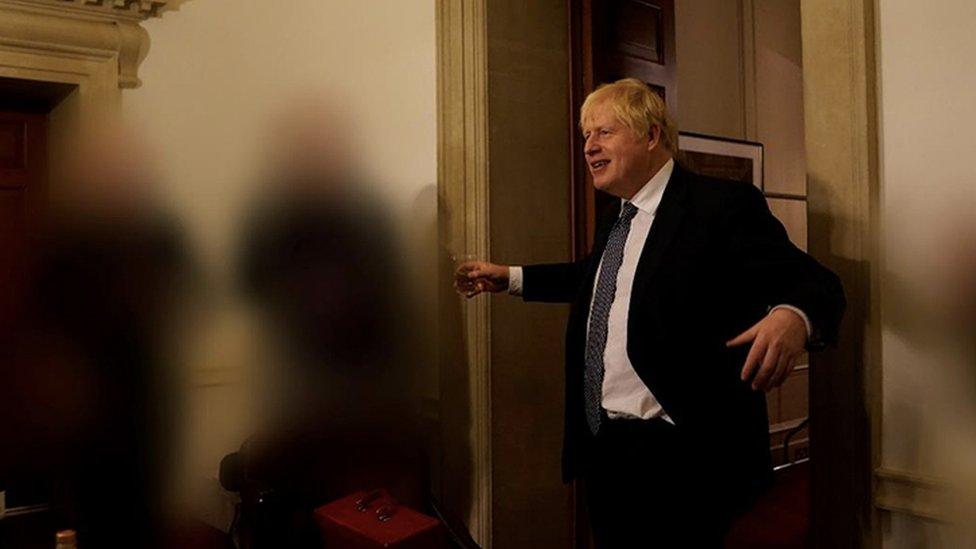Boris Johnson under pressure to cut taxes after confidence vote
- Published
- comments

Boris Johnson is coming under pressure from his MPs to cut taxes after surviving a vote of confidence.
The prime minister's supporters believe the move would help rebuild unity in the Conservative Party and help people cope with the rising cost of living.
But ex-cabinet minister David Davis accused Mr Johnson of "letting things slide" and warned him to "get his act together" quickly or leave office.
A No 10 source said the PM wanted to bring in tax cuts "in the longer term".
They added that moving too fast in this direction could push up public borrowing and debt.
Mr Johnson is facing MPs in the House of Commons in Prime Minister's Questions for the first time since four in 10 of his own MPs backed ousting him in a confidence vote on Monday.
The result followed months of criticism over parties that took place in Downing Street during lockdown, with the prime minister himself being fined for attending one gathering. It also came amid a rapidly rising cost of living.
Mr Johnson has urged his party to "draw a line" under questions about his leadership, but some Conservative MPs are still publicly calling on him to quit.
Tax burden
The prime minister, whose government has recently raised National Insurance to help deal with NHS backlogs and social care funding, is now facing pressure to announce policies that would appeal to MPs from across his party.
He is said to have hinted at reductions to the tax burden - currently at its highest level since the 1940s - when he met them before Monday's vote.
And at Tuesday's cabinet meeting, he said: "We will have the scope, by delivering tax cuts, I think, to deliver considerable growth in employment and economic progress."
But the BBC has been told that no specific measures were discussed and, on Wednesday, a No 10 source said the prime minister wanted to cut tax "in the longer term", but cost-of-living support and dealing with the cost of Covid measures took "priority at this stage".


Taxpayers will get some relief next month when a National Insurance threshold rise comes into effect, bringing the amount people can earn before they start paying it up to £12,570.
But NI payments went up at the beginning of April, meaning anyone currently earning more than £9,880 a year has to pay 1.25p more in the pound.
And businesses are also due to pay more tax, with the rate of corporation tax, on company profits, due to rise from 19% to 25% for larger firms, starting in 2023.
The autumn Budget is expected to bring some tax cuts for companies, in an effort to encourage investment.
On Tuesday, Business Secretary Kwasi Kwarteng told the BBC he wanted to see tax cuts "as soon as is possible" - and he was joined by his cabinet colleague, Health Secretary Sajid Javid, who said on Wednesday: "I would like to see us do more on tax cuts."
Former Brexit minister Lord Frost, who resigned last year, said: "All tax rises that we brought in, and the corporation tax ones that are due to come in soon, ought to be reversed".
And Trade minister Penny Mordaunt told the Guardian, external: "To increase revenues and growth for the nation, [the government must] cut taxes."
'Dreadful headlines'
But Mr Davis, who has previously called for Mr Johnson to quit, used a Times newspaper column to criticise the prime minister's leadership style, arguing he had "been light on detail from day one".
"What I hope Johnson will now avoid is a set of populist policies that are drafted in the hope of shoring up our immediate popularity," he added.
"This may work in the very short term, but if the policy is not thought through carefully enough, it will end up with dreadful headlines as it goes wrong."
The Conservative Party faces tricky by-elections in the seats of Wakefield in Yorkshire and Tiverton and Honiton in Devon at the end of this month.
On Tuesday, Labour's shadow home secretary Yvette Cooper said Mr Johnson did not have "any sense of honour" and should resign.
Campaigning in Tiverton and Honiton on Wednesday, Liberal Democrat Treasury spokeswoman Christine Jardine said: "This is a government in crisis, too divided and weak to offer the help people need to cope with the cost-of-living emergency."
Mr Kwarteng admitted the two mid-term by-elections would be "challenging", but added that such contests "generally are" for parties in government.
"People have written off Boris Johnson for 20 years. I've read his political obituary dozens of times," he said. "But I think ultimately he is a winner".
The prime minister is also to be the subject of an inquiry by the Commons privileges committee into whether he misled Parliament over lockdown rule-breaking in Downing Street.
Related topics
- Published7 June 2022

- Published25 May 2022
